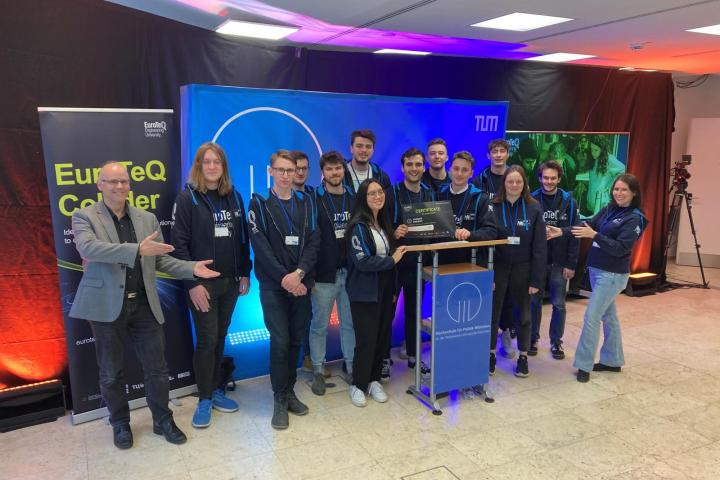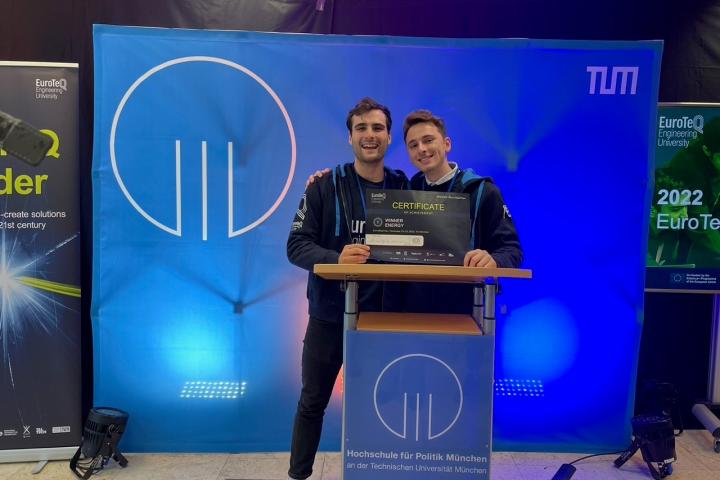
The students Prokop Pučejdl, Edoardo Tasini (Faculty of Mechanical Engineering) and Danila Lisitskii (Faculty of Nuclear and Physical Engineering) have proposed to optimise electricity production in natural gas pressure reduction stations by using an innovative cycle in which waste heat from the cogeneration units (also known as CHP- combined heat and power units) is used to generate electricity.
The team leader, Prokop Pučejdl, commented on the solution: "Our cycle uses an organic substance as the working medium instead of conventional steam cycles. Because of this, we can use waste heat to generate electricity and make full use of the energy production capacity of the reduction stations throughout the year." He further adds: "The Munich competition brought together a multidisciplinary and multicultural group of competitors and mentors. Therefore, we had a lot of room and opportunities to learn both during the school program and while socializing over the (in Munich so popular) Czech national drink. We entered the final competition, along with two other Czech teams, with the highest ambition, but also with a healthy dose of nervousness. In the end, we were the winners, but to be fair, the credit goes to all three Czech projects."
The project leader of the EuroTeQ Collider course is Prof. Henri Achten from the Faculty of Architecture. He remarks on the success of the CTU students: "I am very happy for our students to have succeeded in this project course, which is not quite common for us. The so-called "Challenge Based Learning" (CBL) at technical universities is a meaningful way of linking assignments from industrial partners and innovative teaching, focusing on current societal challenges."
Thomas Merker, GasNet's CFO, added his message for the winners: "Congratulations to the CTU team on their significant success, which is a great example of the link between higher education and practice. The European gas industry is undergoing a transformation towards renewable energy. GasNet is ready to increase the share of biomethane and hydrogen in the distribution network and implement new technologies similar to the one proposed by the CTU team. Collaboration with schools will be crucial for the green gas industry, and CTU's results in this year's EuroTeQaThon competition are an inspiring example for the future."
The brief description of the winning competition theme is available here.
A presentation of all three Czech projects presented by CTU students at the EuroteQaThon competition is available on the CTU website.
